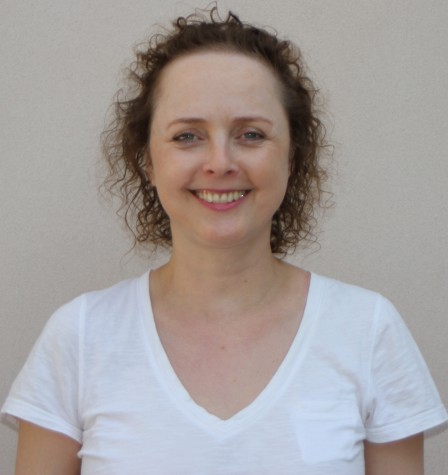When the serial killers dubbed the “Hillside Stranglers” murdered two of her close friends, Lisa Rosales switched careers from being an elementary school teacher to a police officer. She now serves the Pasadena Police Department as a commander in the Strategic Services Division.
Rosales was part of a panel celebrating Women’s History Month called “Breaking Barriers: Women Who Work in Non-Traditional Jobs,” which took place on March 25 in SB243.
The panel consisted of Rosales; Sita Demirjian of the Glendale Fire Department; Brenda Zalke, chief financial officer at IHP Capital Partners; and Ashley E. Armstrong, Associate Athletic Director for the UCLA Bruins.
The panelists discussed whether there were advantages of being a woman in traditionally male-dominated jobs. Rosales said she was surprised to find that after an informal survey of fellow male police officers, most said they would rather have a female partner.
According to Rosales, women are more compassionate communicators, which often helps when called out on an incident like a domestic violence case. In law enforcement, women are generally thought to be less judgmental, and male police officers feel more comfortable sharing with female colleagues on long watches.
“As long as you are comfortable in your own skin, you are going to go a lot of places,” Rosales said. “Education is key when it comes to promotion, and if you have a degree, you will have a better opportunity.”
The panel members discussed how there are still plenty of challenges entering a field dominated by men. Armstrong cited Sheryl Sandberg’s book “Lean In: Women, Work, and the Will to Lead” as an excellent book on the issues that women face in the workplace.
Armstrong said that she makes a conscious effort to think about what she is wearing so that she is taken seriously. She does not want people to focus on what she looks like and has had many discussions with young female colleagues entering the field of collegiate athletics on what is means to dress “business casual.”
“I’ve been told I’m too assertive or [that] I’m too intimidating, which I love.” Armstrong said. “A lot of the men are older and there is a generation gap as well. You have to suggest things to men instead of telling them, make it seem like it is their idea.”
The panel members agreed that being yourself and not trying to act like “one of the guys” was an important way to gain respect. Zalke, whose love of math led her to a successful career in finances, said that one division president would often gather her male colleagues for talks while ignoring her. She felt it important not to get frustrated and have a “boys will be boys” attitude, but knew that he would eventually have to come to her for approval as she was the chief financial officer in control of the company’s purse strings.
Rosales recalls her “piss and vinegar” as a rookie cop. She once left a crime scene because the male victim did not want to speak to a woman. She thought she was in trouble when the watch commander called her in to discuss the incident but instead was surprised to find that he supported her decision.
The Hillside Strangler murders had inspired Rosales to take up law enforcement. During the late, 1970s Angelo Buono Jr., and his cousin Kenneth Bianchi kidnapped, raped, tortured and murdered nine young women in and around Los Angeles and Glendale. Rosales’ uncle was a detective working on the case. All of the women were killed in Buono’s automobile upholstery shop in Glendale.
When Rosales was promoted to police sergeant, a male counterpart kept taking over the incidents she was called out on, so she again left the scene, deciding not to be confrontational. However, when she became his supervisor she pulled him aside and decided to take the high road.
“You’ve been a jerk to me all these years,” she told him. “But I have your back. I am going to take care of you.”
Now in her mid 20s, Demirjian discovered her passion working for the Glendale Fire Department. She had previously studied architecture but found she was more interested in the safety and function of buildings rather than what they looked like. As a woman, one of the problems she came across at the fire department was the uniform.
“They only had pants that were made for men,” said Demirjian. “I had to spend weeks getting the uniform altered.”
She is working on revising the policy to make the uniforms a little more flexible for women.
Demirjian said that as a fire protection engineer she faces sexism in her field on a daily basis. Male clients have told her they did not want to speak to a woman. The way she deals with this problem is by trying to educate them and explaining her job. At the end of the day, however, she says if they don’t want to deal with her, they don’t get their fire certificate.
“Find a mentor to look up to, whichever field you chose,” Demirjian said, “You will face challenges but these will help you become a better person.”


